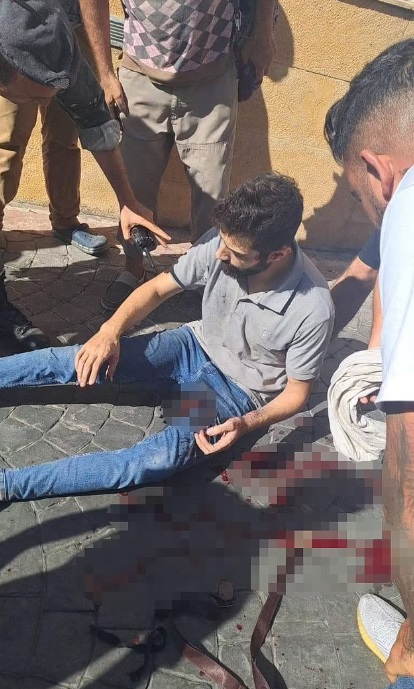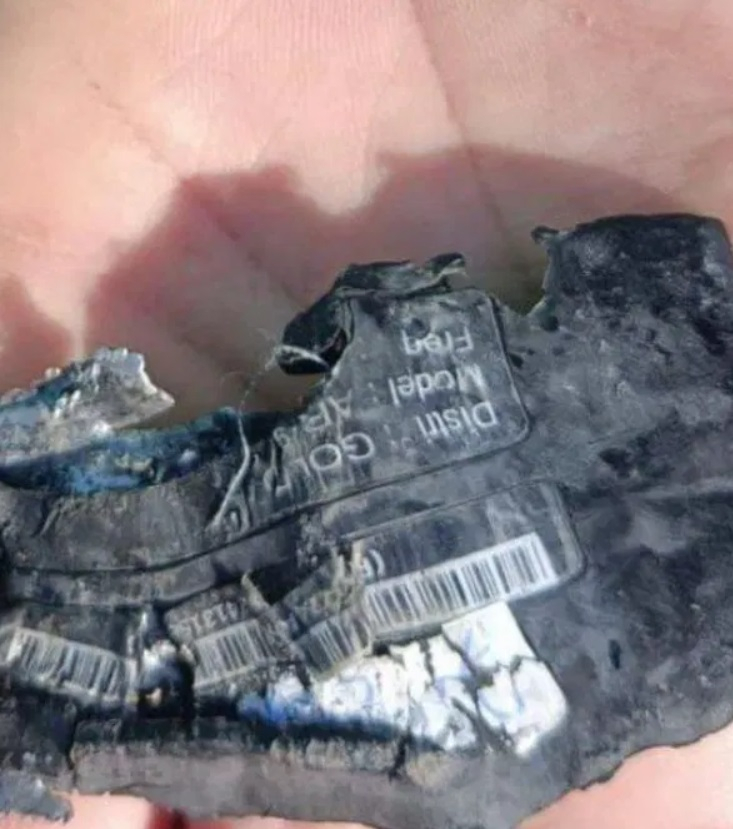The mystery surrounding how Mossad acquired the pagers used in bombings in Lebanon, which killed nearly 40 people and injured thousands over two days, has deepened after a British university said that it never taught the woman who provided those pagers them to the spy agency.
Over those two days, explosives hidden in pagers and walkie-talkies detonated across Lebanon in a major operation likely carried out by Israel's covert intelligence agency, Mossad. It is believed that Mossad created several companies across Europe to manufacture and sell these vintage radio devices, modifying them to include lethal amounts of PETN explosive along with miniature detonators, and then go on a deadly attack.
Spy Disguised as Scientist

According to three intelligence officers interviewed by the New York Times, the Hungarian company BAC Consulting, said to have supplied the pagers, was actually part of an Israeli front.
The firm was managed by the glamorous "scientist" Cristiana Barsony-Arcidiacono, who claimed to speak seven languages, had studied politics at the London School of Economics (LSE), and held a PhD in physics from University College London.

Barsony-Arcidiacono's areas of expertise include International Relations and Business Development, with notable contributions to a Nobel Peace Prize and significant work on climate and conflict resolution.
Her resume also highlights her proficiency in seven languages, including Russian and Italian.
From 2015 to 2017, she pursued a diploma in politics at the London School of Economics, following four years at the School of Oriental and African Studies, where her thesis focused on climate change risks in Guinea Conakry.
Before that, she was at University College London from 2002 to 2006, working toward a PhD in Physics.
On the scientific platform ResearchGate, she lists her skills as 'Quantum Mechanics' and 'Disaster Management.'

However, LSE said that it never awarded Barsony-Arcidiacono her graduate degrees in politics during the years in question. Also, neither UCL nor the School of Oriental and African Studies could verify her claims of having studied at their institutions.
In her CV on the BAC Consulting website, she presents herself as a scientist, stating: "I am a scientist using my very diverse background to work on interdisciplinary projects for strategic decision-making (water&climate policy, investments).
"With excellent analytical, language, and interpersonal skills, I enjoy working and leading in a multicultural environment where diversity, integrity, and... humor are valued."

American journalists who contacted Barsony-Arcidiacono by phone earlier in the week reported that she denied any knowledge of the plot, saying, "I don't make the pagers. I'm just the intermediary."
BAC's website, which has since been taken down, was filled with images of landscapes, corporate jargon, empty buzzwords, and "inspirational" quotes from Einstein and Leonardo da Vinci. Its headquarters was an unoccupied apartment in Budapest.
Well-Planned Operation by Mossad
John Bayliss, a former official at GCHQ, suggested that Israel discovered a company handling Hezbollah's order wanted to outsource production to Europe. They seized the opportunity to set up a "dummy company" to fulfill the order and undercut competitors.

At least two other shell companies were also created, including one in Sofia, Bulgaria, led by a Norwegian businessman.
These companies were designed to conceal the real identities of those developing the devices for Israeli intelligence. Mossad had been formulating this strategy well before Iran-backed Hezbollah leader Hassan Nasrallah declared that mobile phones were too easily traceable and mandated their replacement with pagers and walkie-talkies.
If Israel opted for high-tech solutions, Hezbollah would revert to simpler methods. "You ask me, where is the agent?" Nasrallah told his followers.
"I tell you that the phone in your hands, in your wife's hands, and in your children's hands is the agent. Bury it. Put it in an iron box and lock it."
After this speech in February, it is believed that Mossad quickly intensified its production of explosive devices.

Throughout the summer, shipments of pagers to Lebanon surged, with thousands entering the country and being distributed to Hezbollah officers and their allies, according to American intelligence officials.
Meanwhile, Icom, the Japanese manufacturer whose name appeared on the handheld radios that detonated, said that it had stopped production of the device a decade ago. Icom confirmed that it had not shipped any of the IC-V82 radios since 2014.
These explosions have significantly heightened the already high tensions between Israel, Hezbollah, and the terror group's allies.









